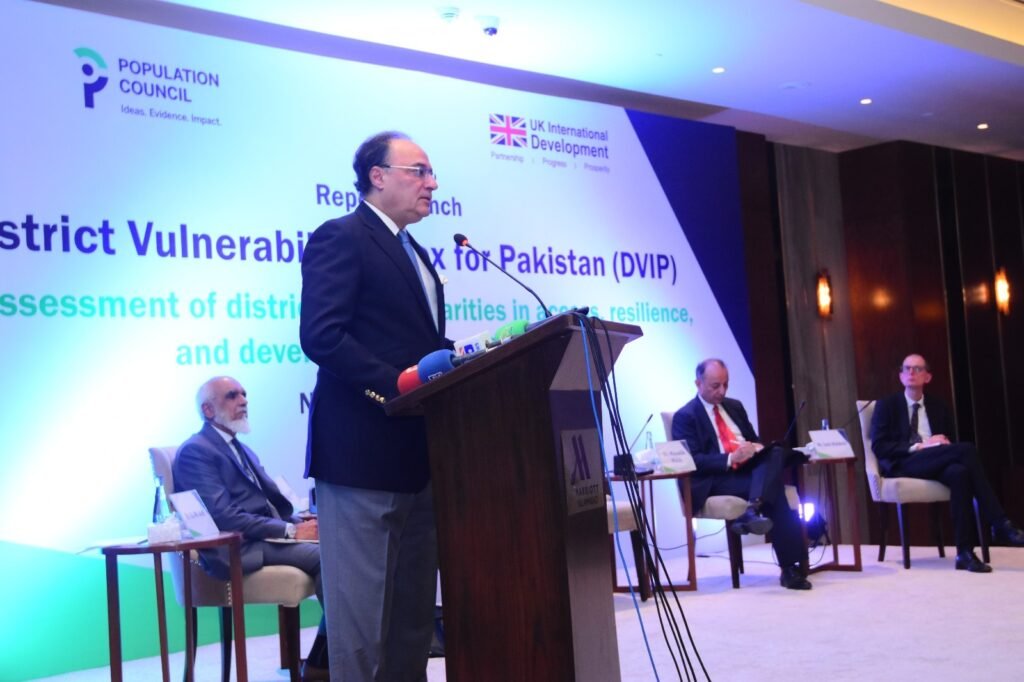
Islamabad : Federal Minister for Finance, Senator Muhammad Aurangzeb, has underscored that Pakistan’s long-term economic prospects depend on effectively confronting the dual national challenges of rapid population growth and climate vulnerability.
He made this observation during his address to the launch ceremony of the District Vulnerability Index for Pakistan (DVIP), organized by the Population Council. The Minister noted that while the country continues its trajectory toward macroeconomic stabilization and growth, Pakistan cannot realize its full potential without addressing the pressures created by population momentum and escalating climate risks.
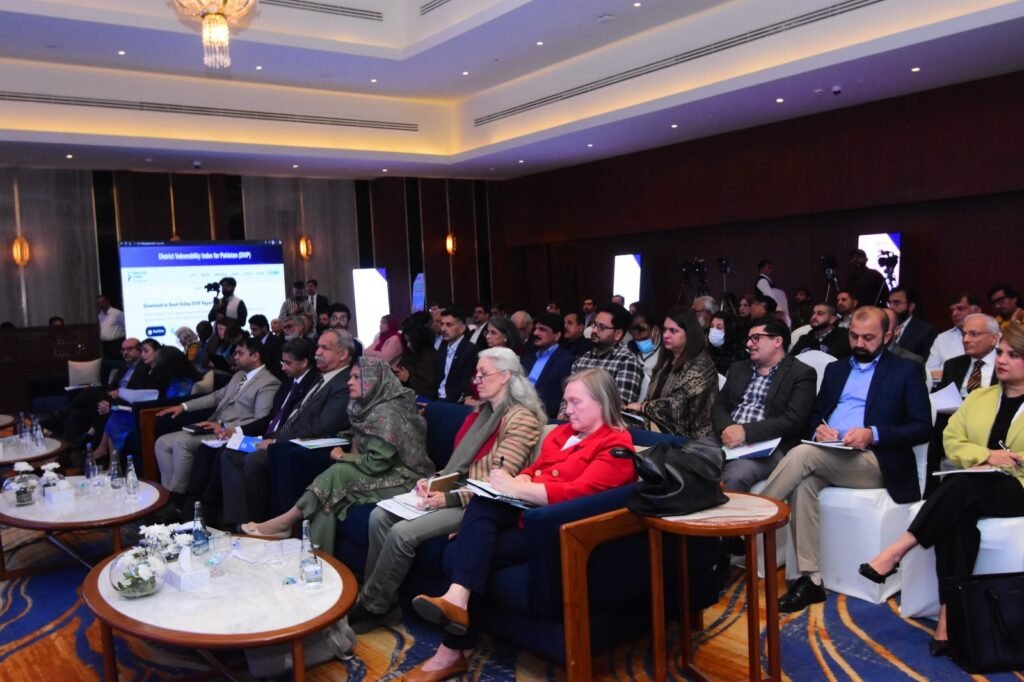
He highlighted that the impacts of high population growth are reflected in persistent human development challenges, including child stunting, learning poverty, and a workforce insufficiently equipped for the future. At the same time, climate change continues to expose communities to extreme temperatures, floods, droughts, and environmental degradation, with the most severe effects falling on districts already struggling with poverty, weak infrastructure, and limited access to essential services.
The Finance Minister affirmed the Ministry’s commitment to supporting national efforts in population and climate-related policymaking by integrating these priorities into budgeting and resource allocation. He underscored the increasing role of finance ministries globally in mainstreaming climate and demographic considerations, reinforcing that Pakistan must adopt the same approach to ensure long-term resilience and equitable development.
Senator Aurangzeb commended the Population Council for producing a comprehensive, data-driven District Vulnerability Index based on three years of research. He emphasized that the Index provides actionable management information through its detailed analysis across six domains, offering meaningful insights into geographic disparities and identifying districts most at risk, particularly in Balochistan and Sindh. The findings reflect how social vulnerabilities and climate exposure reinforce each other, creating compounded risks for already marginalized populations.
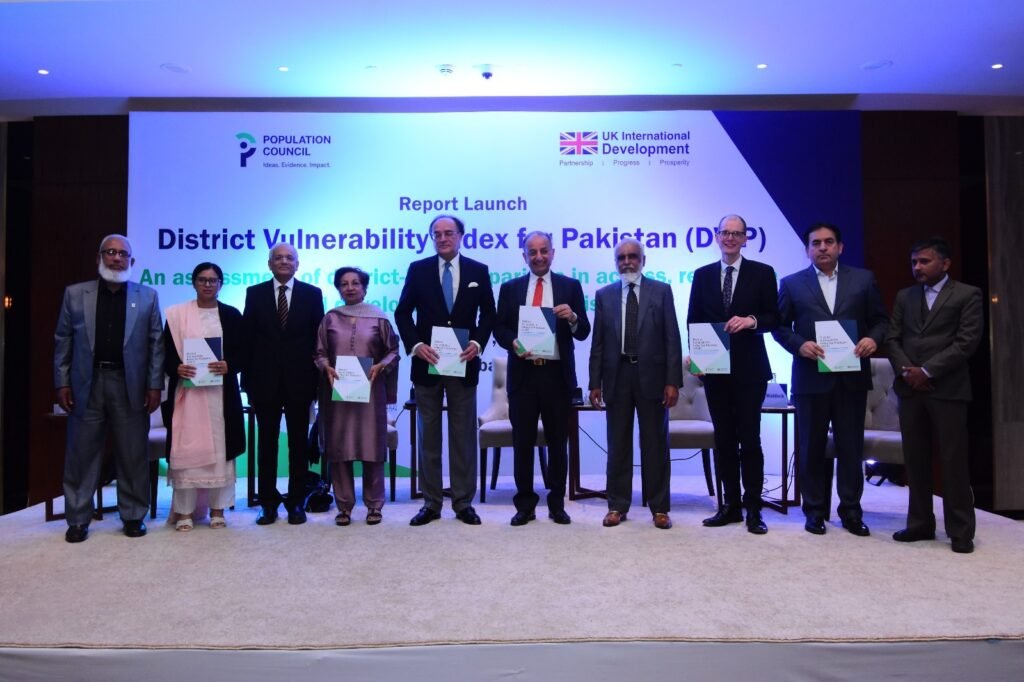
He also drew attention to the growing trend of rural-to-urban migration and the expansion of informal settlements, where inadequate water, sanitation, and hygiene conditions contribute to poor nutrition outcomes and perpetuate child stunting. He encouraged further research on urban vulnerabilities so that national planning can address the full spectrum of demographic and climate-linked challenges.
The Minister highlighted the need to recognize the interdependence between population dynamics and climate impacts and called for the integration of vulnerability metrics into future frameworks for resource allocation. He stressed that incorporating these insights into national planning will be critical for ensuring equity, strengthening resilience, and directing support to the districts that need it most.
Senator Aurangzeb appreciated the support of development partners, particularly the UK Government and FCDO, for their continued assistance in governance reforms, revenue mobilization, and evidence-based policymaking. He expressed confidence that the District Vulnerability Index will serve as an important tool for guiding future national strategies and thanked the organizers and contributors for their efforts.
Sohail Majeed is a Special Correspondent at The Diplomatic Insight. He has twelve plus years of experience in journalism & reporting. He covers International Affairs, Diplomacy, UN, Sports, Climate Change, Economy, Technology, and Health.


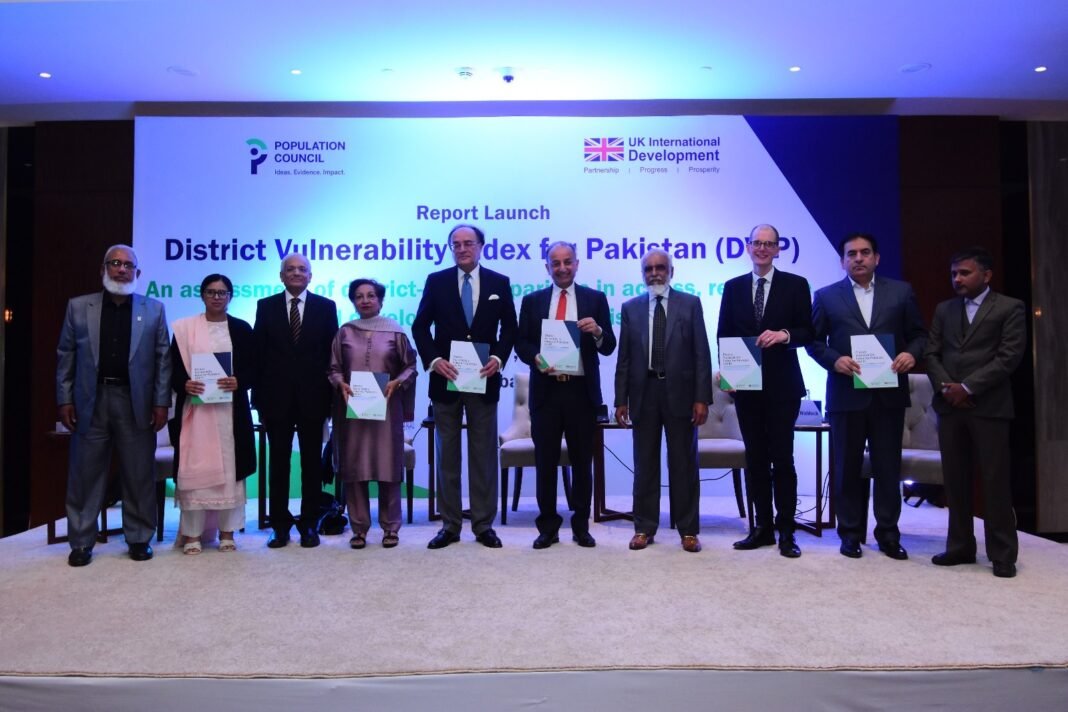


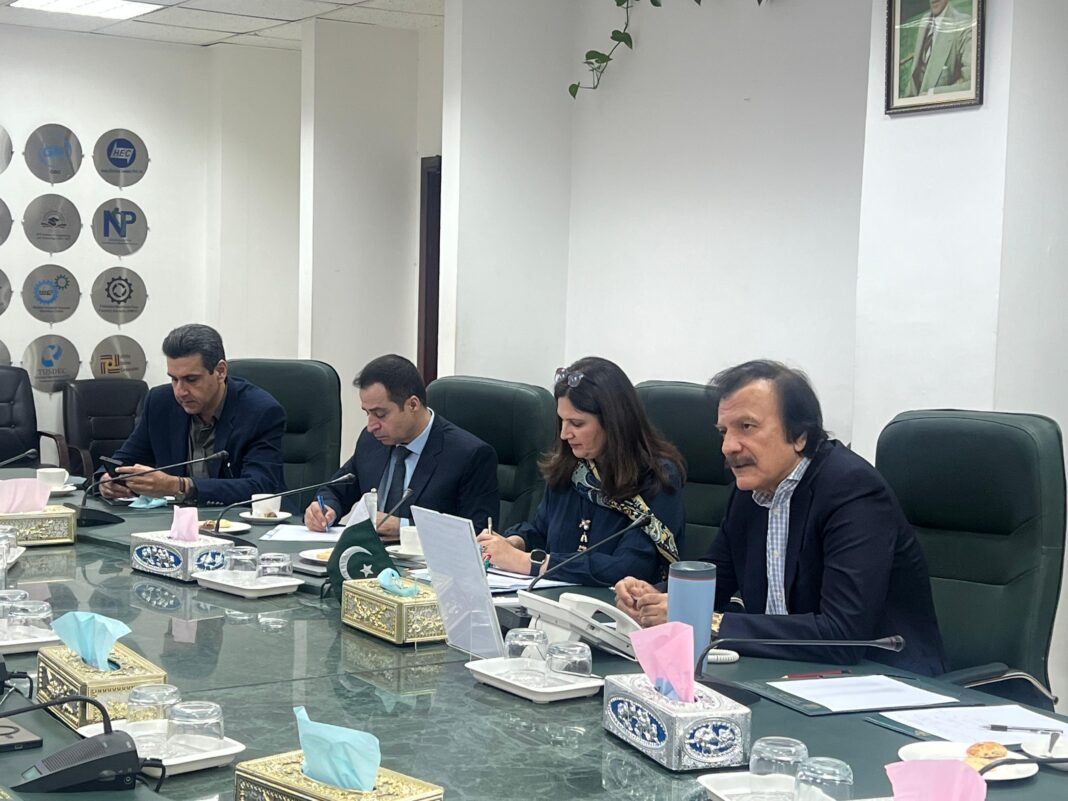
![logo-1[1]](https://globalnewspakistan.com/wp-content/uploads/2025/01/logo-11-e1737618310315-300x187.png)